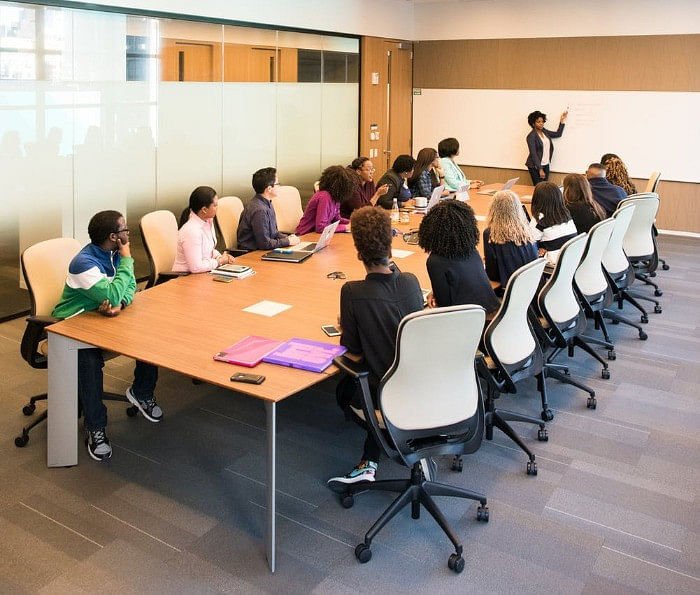How to Make your Meetings More Efficient

Veterans and newbies to office life alike understand one universal truth: meetings happen. However, the difference between a productive meeting that goes places and a meeting that feels like a traffic jam all boils down to efficiency.
It’s estimated that up to 50% of everyone’s workday can be spent in meetings. Yet, meetings are a necessity to keep everyone informed and involved in the problem-solving process. This means understanding how to make your meetings more efficient will increase your team’s productivity.
Here are just a few ways that you can make meetings more efficient:
1) Ask Yourself: “Is this meeting necessary?”
Many meetings are not actually needed, but they are scheduled anyway out of a sense of obligation or pattern. The entire point of a meeting is to help accomplish a goal, but if the goal can be completed with less work and time taken up, say with a memo, then it’s wasteful to commit to a full meeting.One of the best ways to keep meetings efficient is to understand that if a meeting isn’t required, then don’t have one!
2) Write a Meeting Agenda
If your meeting is necessary, then establish a clear agenda and write it down beforehand. Having a meeting agenda will help you keep focused on the purpose of the meeting and minimize socializing. This is especially impactful for those who tend to wander off-topic frequently in more informal meeting settings. Writing the agenda down will also help you stick to it, as studies show writing down plans make you 70% more likely to accomplish them. Distribute the agenda to those who will be there at least 24 hours in advance so that they can prepare their work as needed.
3) Start and End the Meeting On Time
Making a meeting more efficient is done by putting time constraints on it. For those meetings that seem to have a long window of time, it’s easy to have one topic dominate the session or to wander off-topic entirely. Having strict start and stopping times for your meeting will instill a sense of obligation to make the best use of it. Don’t bother waiting for late arrivals to the meeting either; they can pick up what they missed quickly.
4) Talk About the Most Important Topics First
Making sure to cover the most important matters first means that your meeting, even if it’s cut short, will still be productive. People also tend to remember the first and the last things said more than anything else in a discussion, so improving a meeting’s effectiveness means addressing those matters at the start.
5) Summarize the Key Points At the Meeting’s End
Echoing the previous tip, people will remember what’s said at the end of a meeting better on average than what’s sandwiched in the middle. Summarizing key takeaways to make a meeting more efficient is great to make sure that everyone understands the importance of what was talked about.
How to Make Your Meetings More Efficient is Up to YOU!
The difference between a staff that dreads meetings and those that walk away from them feeling accomplished all depends on the preparation stages beforehand. Making team meetings more efficient is easy with the above steps, so from now on, make the most of your meetings with effective planning and summarizing!
Learn more ways to make your company meetings more efficient and other tips for the office by taking a look at our blog feed. If you are in need of new products like multifunctional printers or interactive whiteboards, contact GCOP today!
